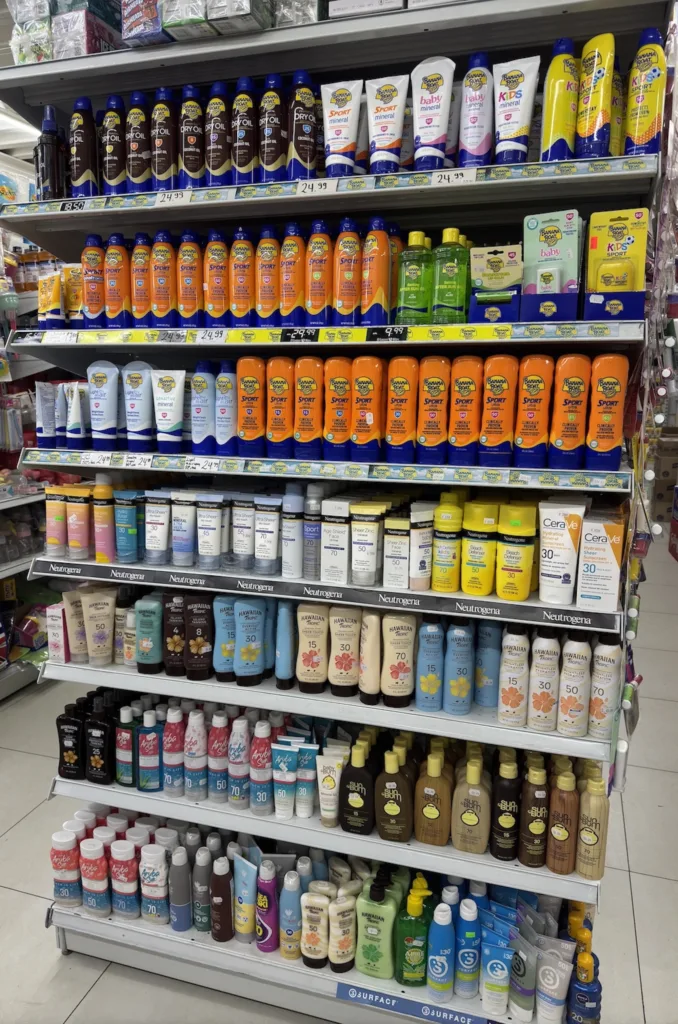As part of its commitment to protecting its natural environment, especially its delicate marine ecosystems, in 2019, Aruba introduced sunscreen rules to help preserve its coral reefs. As a result, travelers are now forced to seek out reef-safe sunscreen products that offer sun protection without damaging the environment when traveling to Aruba.
In this guide, we’ll cover everything you need to know about Aruba reef safe sunscreen, what’s allowed and what’s banned, and how to pick the best sunscreen for Aruba and your skin.
Aruba sunscreen requirements
While some destinations only recommend reef-safe products, Aruba takes things a step further with official Aruba sunscreen restrictions. If you’re planning a trip to the island, it’s important you’re aware and understand these restrictions.
Under the Aruba sunscreen law, sunscreens that contain reef-damaging chemicals such as oxybenzone and octinoxate are banned from sale and use on the island. These substances have been scientifically linked to coral bleaching and are known to disrupt marine ecosystems even in small amounts.
Here’s a simplified breakdown of what sunscreen is banned in Aruba and what sunscreen is allowed in Aruba:
❌ Sunscreen banned in Aruba:
- Products containing:
- Oxybenzone
- Octinoxate
- Spray sunscreens that may disperse chemicals widely
✅ Sunscreen allowed in Aruba
- Mineral sunscreens containing zinc oxide or titanium dioxide (these minerals sit on top of your skin, rather than absorbing into it, and they provide broad-spectrum protection without leaching harmful substances into the water)
- Products specifically labeled as reef-safe or marine friendly
Aruba approved sunscreens
While you can find plenty of options for sunscreen in Aruba, it’s worth knowing that it tends to be more expensive on the island compared to buying it at home and bringing it with.
If you’re wondering which one to pack, then here are some good picks for inspiration:
For face

For body

If you choose to buy one from Aruba, here’s a snapshot I took of the sunscreen selection from a local grocery store:

Why Aruba enforce sunscreen regulations
Aruba’s coral reefs are a vital part of the island’s ecosystem. But these fragile marine environments are under threat, and one of the lesser-known culprits is indeed sunscreen. Specifically, certain chemical ingredients found in sunscreens — oxybenzone and octinoxate — can be toxic to coral reefs. These chemicals contribute to coral bleaching, disrupt marine life reproduction, and degrade reef health over time.
In response, Aruba has taken action to protect its natural resources by introducing the Aruba sunscreen ban, part of a wider set of Aruba sunscreen laws and regulations. Aruba sunscreen restrictions are designed to reduce the amount of harmful chemicals entering the marine ecosystem and to encourage the use of environmentally friendly alternatives.
So by regulating the types of sunscreen allowed on the island, the Aruba sunscreen ban aims to ensure its underwater beauty remains unspoiled for future visitors.



Leave a Reply